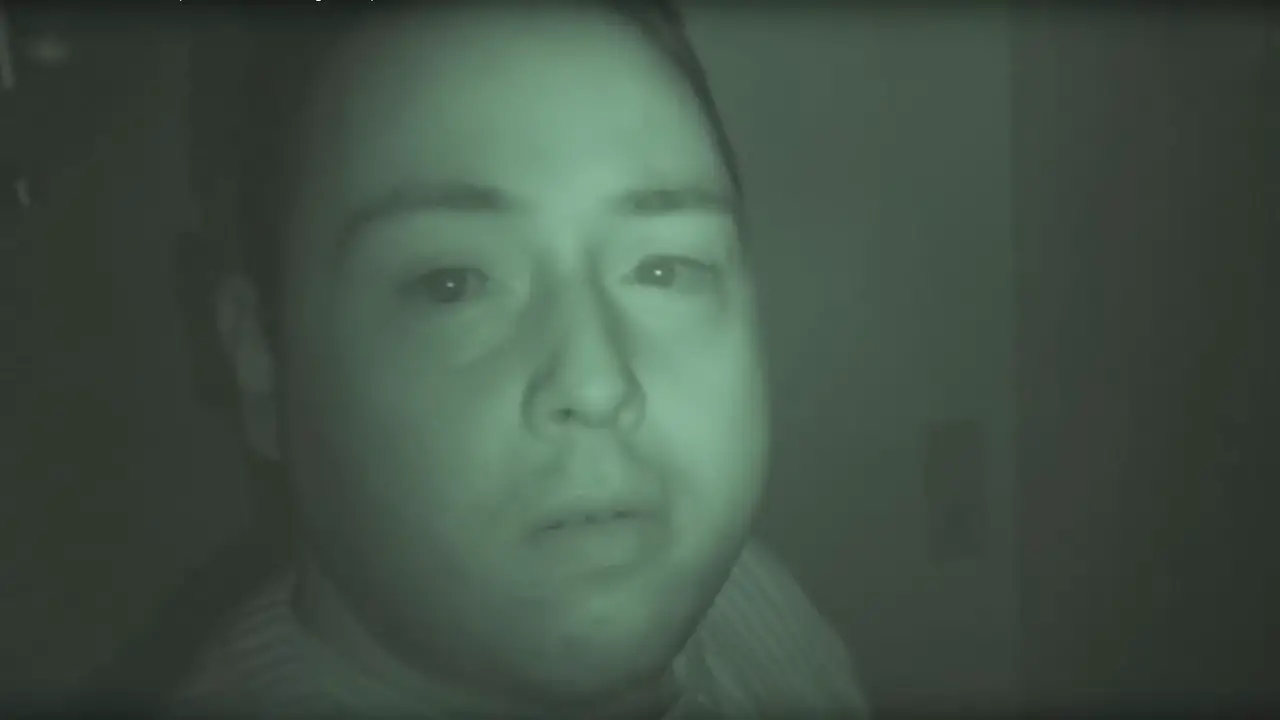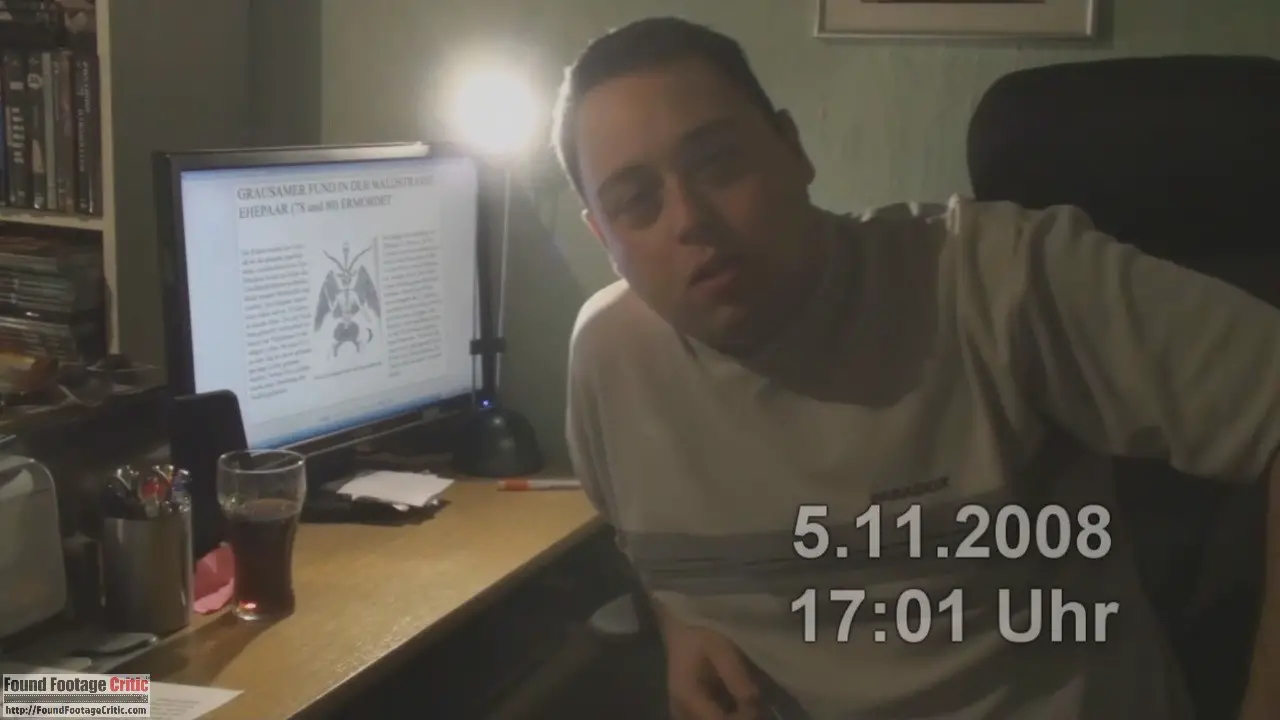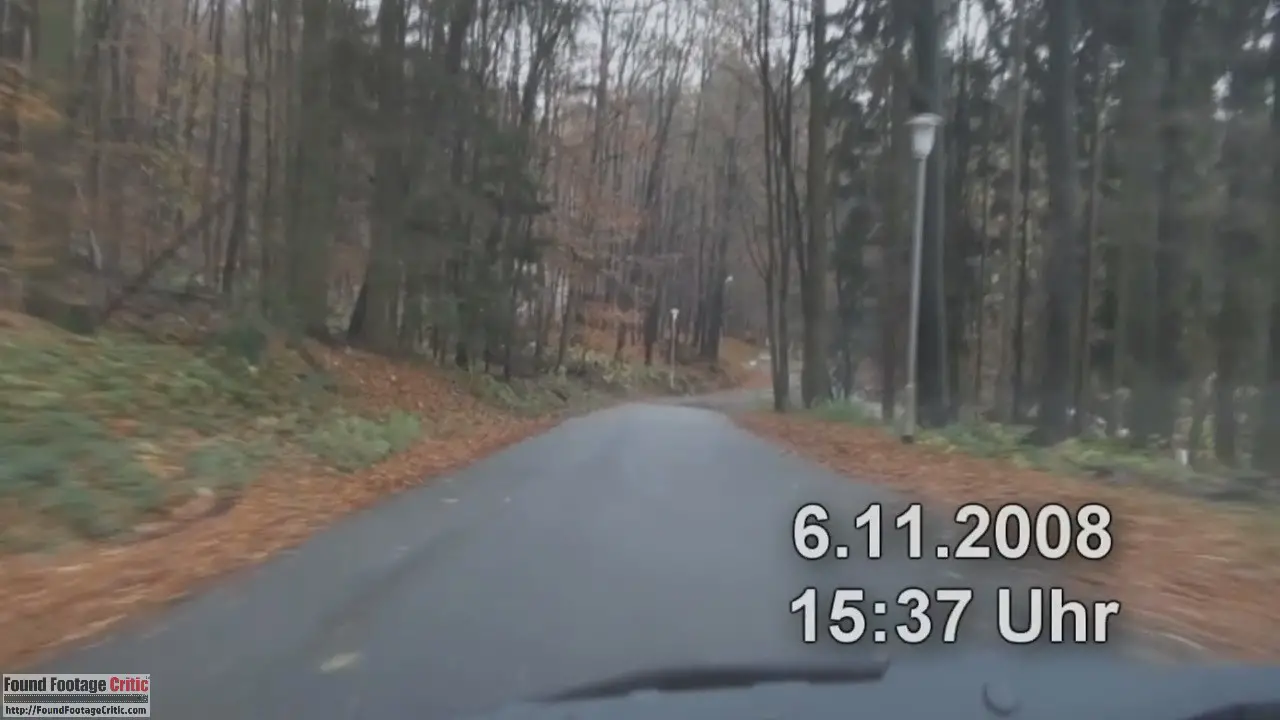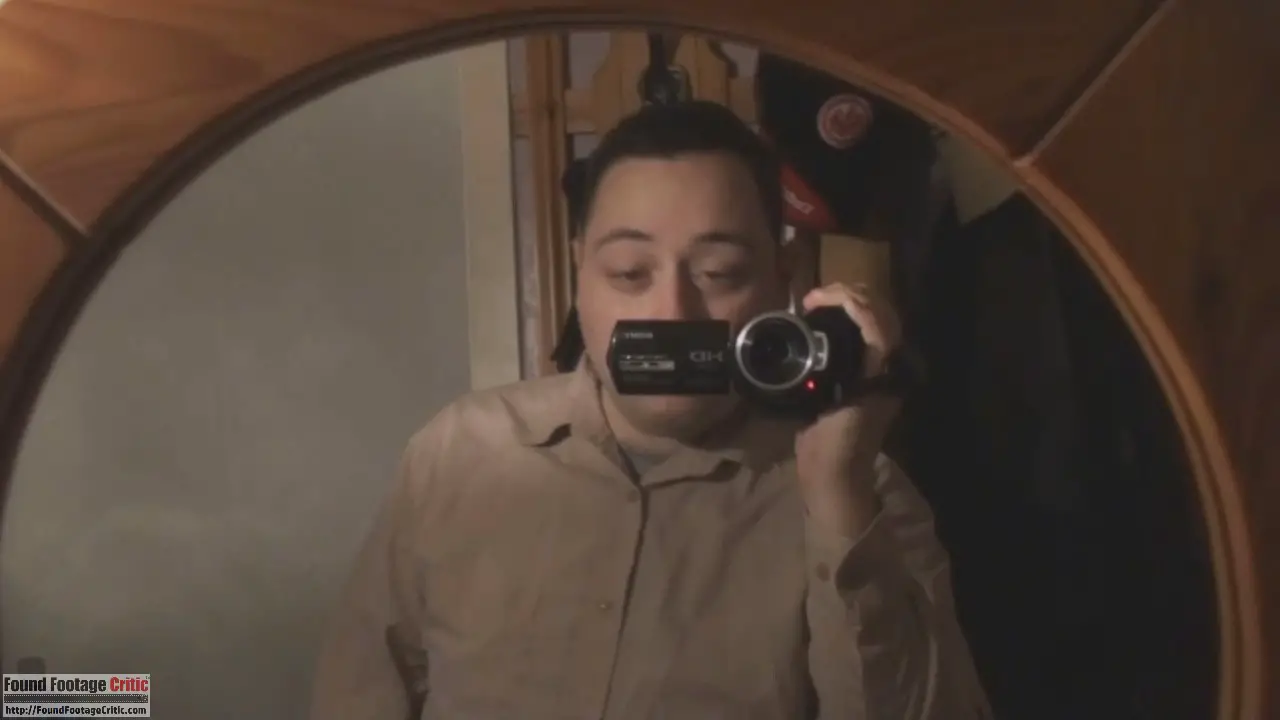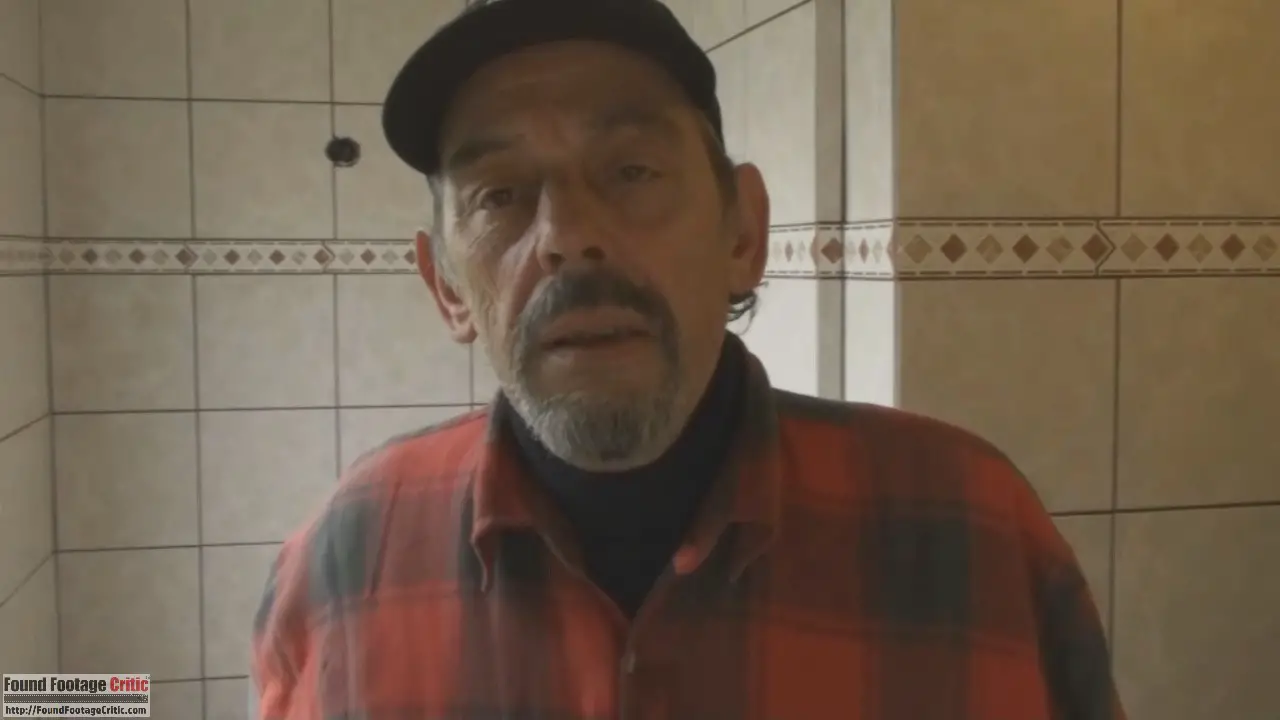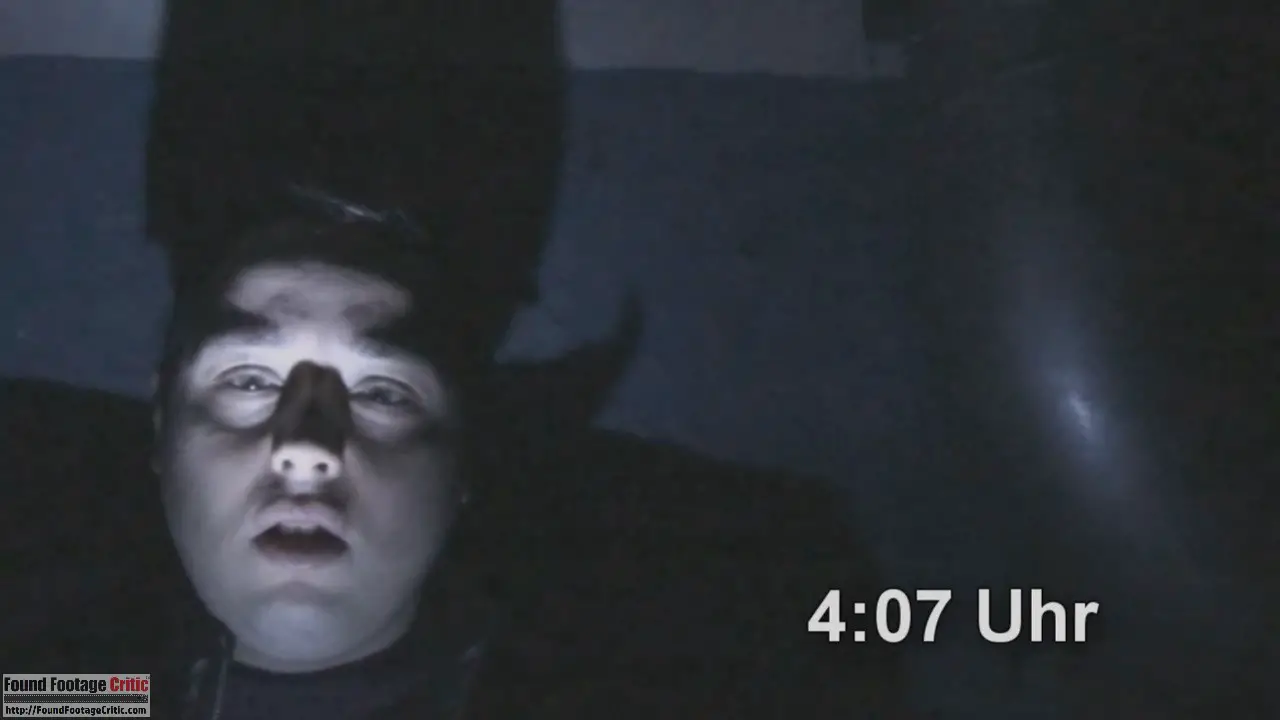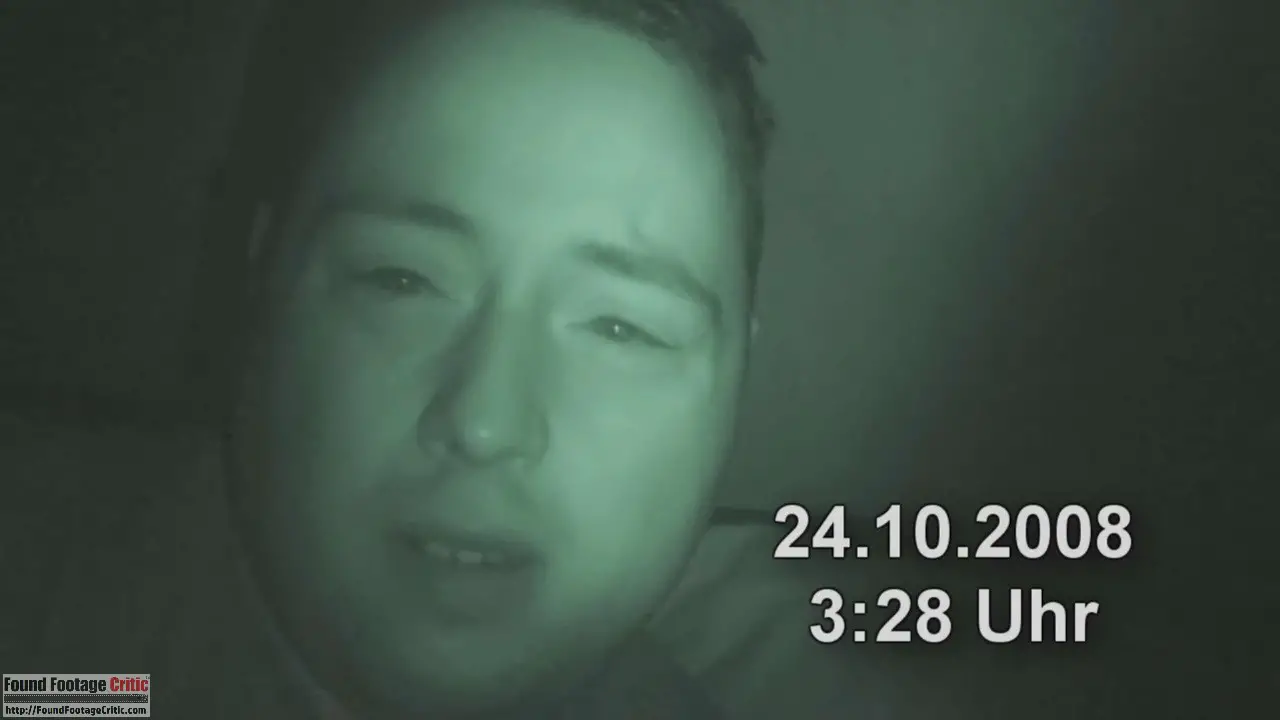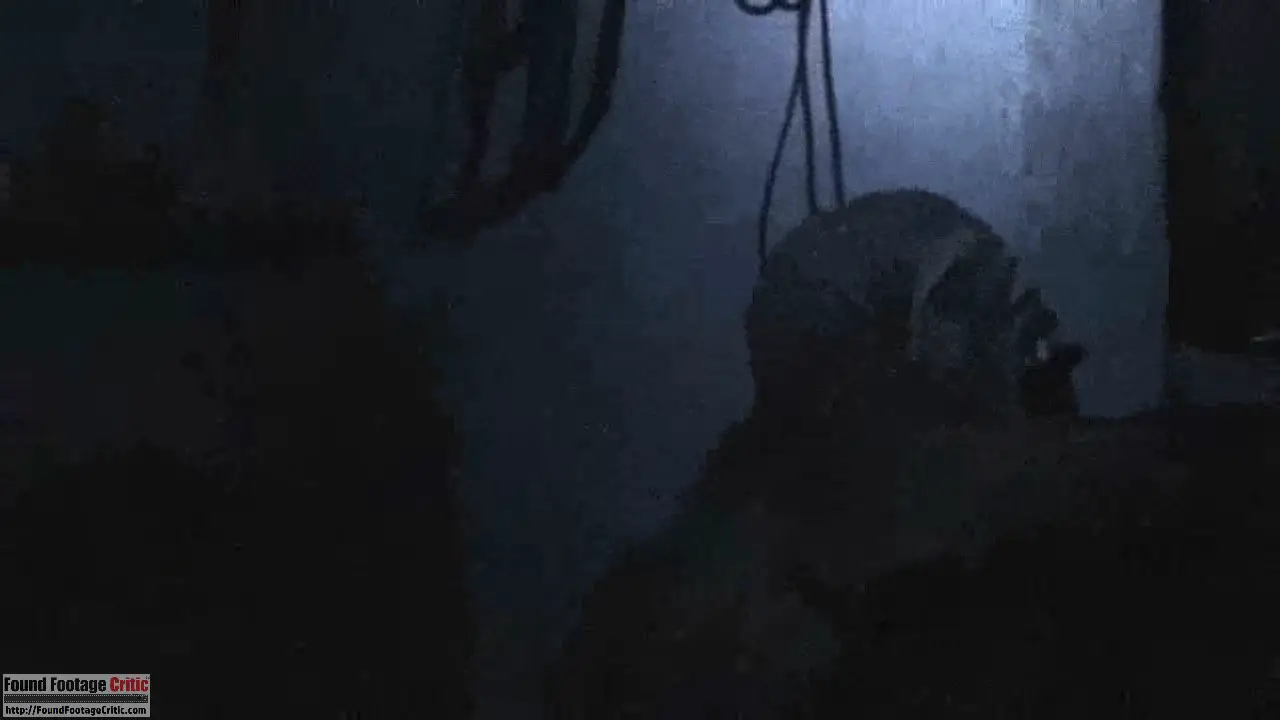 “Basement” is a found footage film from Germany that is written and directed by and starring Thomas Grieser (a.k.a. Tom Maurader). The film is shot with spoken German and English subtitles. Basement follows a man pushed to the brink of insanity by a paranormal force in his basement that taunts him day and night.
“Basement” is a found footage film from Germany that is written and directed by and starring Thomas Grieser (a.k.a. Tom Maurader). The film is shot with spoken German and English subtitles. Basement follows a man pushed to the brink of insanity by a paranormal force in his basement that taunts him day and night.
Director Thomas Grieser is a diehard found footage fan, so much so that he has a German language found footage film review channel (DVDMadness2010) on YouTube. Basement is Thomas Grieser’s feature film directorial debut, with a second found footage film, Pestilenz (2018), in production as of the publication of this review.
Basement opens with Tim Ritter (Thomas Grieser) speaking to his handheld video camera in the privacy of his second story apartment. Tim is currently the only resident in the building, with the lower floor apartment inexplicably vacant for as long as he could remember. He is visibly distressed and physically and emotionally exhausted. We soon learn that each evening Tim hears a loud and persistent banging originating from the basement of the building in which he lives.
Despite his best efforts, Tim is unable to determine the cause of the sound. Several thoughts cross Tim’s mind. Bad pipes? An intruder playing sick games? Tim continues his investigation and makes a terrifying discovery, quickly realizing that he should have left well enough alone and moved out while he had still the chance.
Found Footage Cinematography
The found footage cinematography is generally good throughout Basement. Most of the footage is captured by Tim directly using his handheld video camera. Later in the film, Tim uses additional handheld video cameras as surveillance cameras to capture footage in the basement. The film also employs a healthy amount of night vision cinematography from each of the handheld video cameras.
While the cinematography is good, Basement could have benefited from a more strategic placement of Tim’s primary handheld video camera in scenes where he engages in conversation with other characters. Most (if not all of the film) only shows one character on-screen at any given moment. The placement of the video camera on a table (for example) would have enabled both Tim and other characters to be in-frame at the same time, creating a more engaging experience for viewers and offering a more lively interaction between the cast.
As expected for a micro-budget film, Basement is light on special effects. The latter part of the film does contain one impactful practical effect and minimalistic CGI, both of which achieve their intended results.
Filming Reason
The filming reasons used in Basement are good overall. First and foremost, the protagonist Tim films everything to document his investigation of the strange noises originating in his basement. Complementing this filming reason, he also utilizes surveillance cameras in his basement to capture proof of whatever might be causing the unearthly clanging.
Tim’s filming also serves the secondary purpose of what amounts to a video diary and a form of self-therapy, helping him cope with the strange occurrences in his home.
Found Footage Purity
The found footage purity is a gauge of how accurately a film approximates actual found footage—to this end, Basement does a good job. All of the footage is captured in-universe, and to Thomas Grieser’s credit, Basement does not contain any non-diegetic music or sound design. Additionally, the film feels as though it was assembled from a larger body of raw footage captured on various video cameras.
One aspect of Basement that somewhat diminishes the found footage conceit of the film is Tim’s overly ambitious selling of his situation to his video camera, which is clearly geared towards an unseen audience. Conversely, a more subtle approach to Thomas Grieser’s portrayal of Tim would have resulted in more realistic footage, but at the same time, Thomas Grieser’s extended solo performance would have fallen flat had he toned down his acting.
In comparison, in the found footage film Be My Cat: A Film for Anne (2015), the antagonist, played by director Adrian Tofei, has a similar extended solo performance. In contrast to Basement, Adrian Tofei’s character in Be My Cat: A Film for Anne (2015) films with the intent that his film will by seen by an audience, justifying his often boisterous acting. While these two films are vastly different from one another, the found footage purity is impacted in each film differently based on why and how the characters choose to film.
Despite these minor inconsistencies, Basement admirably strives to maintain the illusion of actual found footage.
Acting
Thomas Grieser is both director and lead actor in Basement and effectively carries the film. We had a chance to chat with Thomas Grieser and he said that much of his dialog is improvised, which makes sense for Basement since he not only wrote the script but spends most the film in solitude, speaking to the camera rather than conversing with other actors.
The cast is rounded out with actors that are presumably family members of director Thomas Grieser, as they share the same last name. Ursula Grieser is convincing as Tim’s no-nonsense landlady, Frau Vogelbauer. She makes no effort to hide the fact that she thinks Tim is wasting her time with his seemingly absurd assertions that something is going on in the basement. Wolfgang Grieser admirably portrays Herr Schwarz, a former tenant of Tim’s building. We refrain from delving further into his character to avoid spoilers.
Last, but not least, Timo Homburg does a good job playing the plumber Tim calls to look at the pipes in his basement.
Plot
The premise of Basement is not only engaging, but it is also the perfect vehicle for what amounts to a primarily solo acting performance. The emotionally distraught protagonist Tim suffers through his own personal hell from which he cannot escape. Tim achieves some measure of solace through recording daily video diaries and filming his investigation of the unidentifiable sounds emanating from his basement.
Elements of Basement’s premise share a vague resemblance to Edgar Allan Poe’s short story The Tell-Tale Heart. Similar to the Edgar Allan Poe narrative, the protagonist in Basement hears strange sounds coming from some unknown location in their house. In both treatments, the protagonist is driven to the brink of insanity by unearthly sounds. Unlike The Tell-Tale Heart, however, the protagonist in Basement did not commit murder, nor did he hide a dismembered body in the walls of his basement—the truth is more grounded in reality (such that it is).
Despite the film’s strengths, the pacing of Basement may feel slow at times for some viewers. One of the dangers of a solo performance is the lack of variety on-screen. In the case of Basement, the film exposes viewers to a handful of rooms within the same house. This monotony is broken from time to time through phone calls, the use of night vision, and visits by Tim’s landlady and a plumber, and an off-location visit to the home of another key character. As mentioned earlier, Basement would have benefited from more varied cinematography, such as placing the video camera on a table enabling multiple characters to be in-frame during conversations.
Director Thomas Grieser is to be commended for coaxing out a respectable performance and developing a good story for his feature film directorial debut—all on a micro-budget. The lesson to be had in this film is if unknown noises from your basement are waking you up every night, pack your bags and move before it’s too late!

